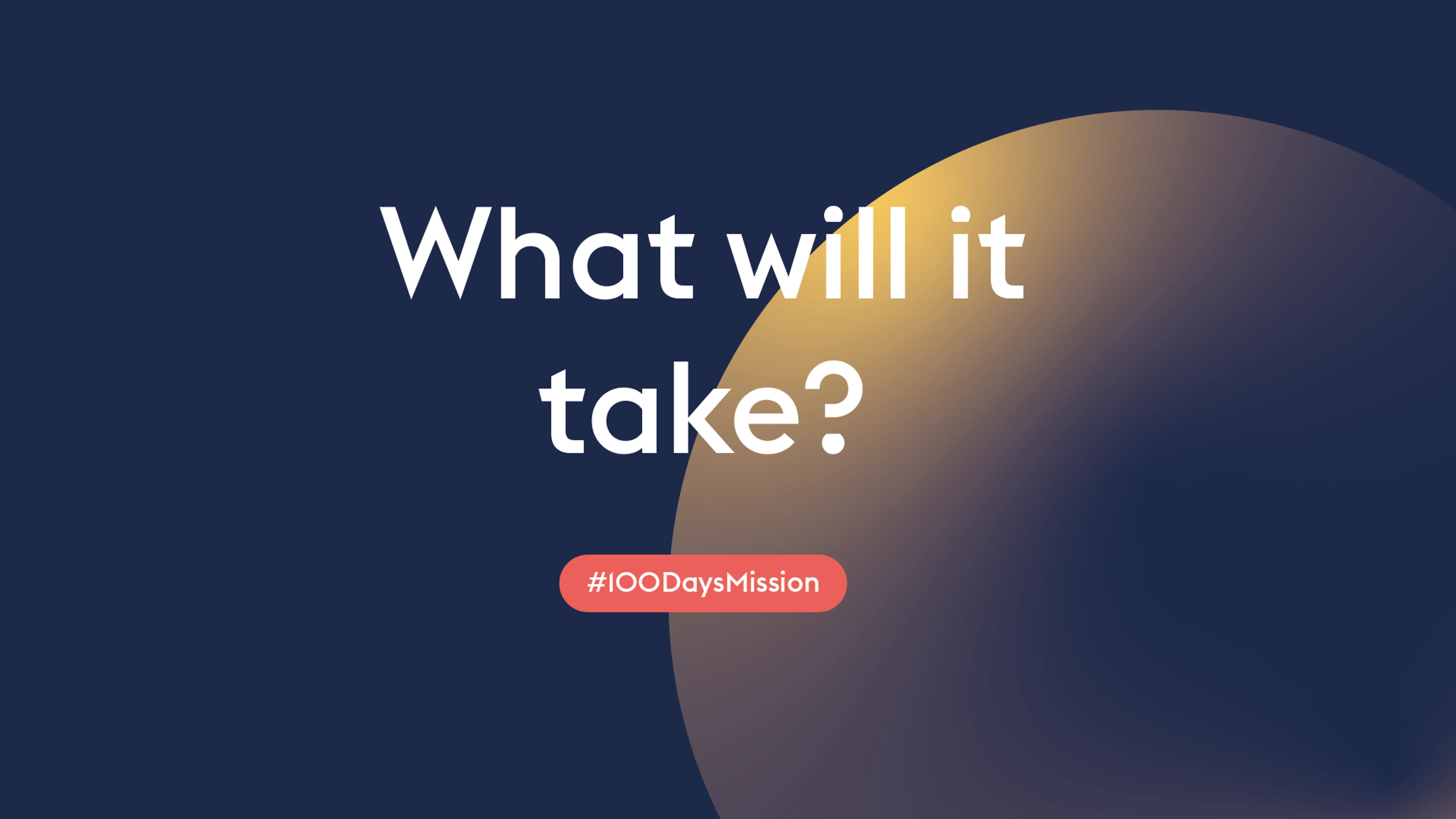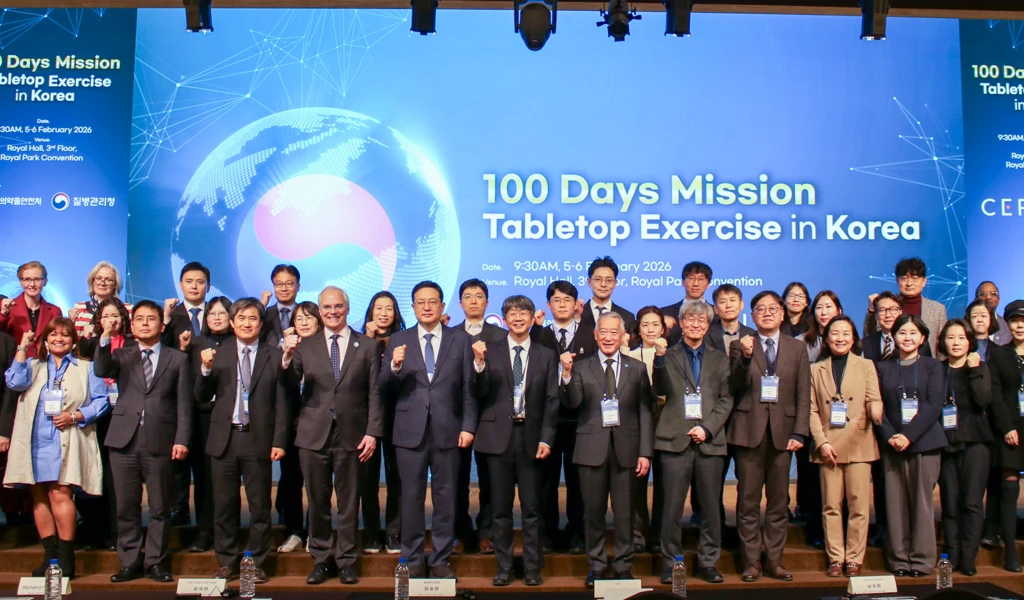What will it take? Global coalition outlines how to beat the next Disease X pandemic in 100 days

November 30, 2022; OSLO: CEPI, the Coalition for Epidemic Preparedness Innovations, has issued a report detailing how the world could deliver future pandemic-beating vaccines in 100 Days. COVID-19 vaccines were developed in record time: it took just 326 days from release of the virus' genetic sequence to get to the authorisation of a safe and effective vaccine. The report, published today, outlines the paradigm shift needed to speed up vaccine development even more, highlighting the crucial scientific and technological innovations that will enable us to develop new vaccines against future pandemic threats in a little more than three months. This 100 Days Mission, as embraced by the G7 and G20, would give the world a fighting shot to stop the next pandemic in its tracks. For its part, CEPI has a US$3.5 billion strategy that, over the next 5 years, will kickstart and coordinate the work necessary to achieve this mission.
Why does the world need vaccines in 100 Days?
Vaccines are our most potent weapon against infectious diseases and are at the heart of the global response to epidemic and pandemic threats. The faster safe and effective vaccines are developed and deployed, the faster a looming pandemic can be contained and controlled.
CEPI's vision is for the world to be able to respond to the next Disease X with a new vaccine in 100 days. Achieving that goal could defuse the threat of a pathogen with pandemic potential.
If the world had delivered a vaccine in 100 days from the time when the COVID-19 viral sequences were released, a vaccine would have become available in April 2020, when there were cumulatively just over 2 million cases of COVID worldwide, rather than in December 2020, when there were almost 70 million.
Coupled with improved surveillance providing earlier detection and warning, and with swift and effective use of non-pharmaceutical interventions such as testing, contact tracing and social distancing to suppress disease transmission, delivering a vaccine in 100 days would give the world a fighting chance to extinguish the existential threat of a future pandemic virus.
"What will it take?"
CEPI's What Will it Take report outlines 5 areas of innovation needed to make delivery of pandemic vaccines within 100 days a reality:
(1) Creating a library of prototype vaccines for representative pathogens across multiple virus families
This includes creating libraries of vaccine constructs against representative pathogens from virus families with greatest pandemic potential. Advancing the world's experience with vaccine platforms will also be important, so that they can be used for rapid adaptation to develop vaccines against new pandemic threats.
(2) Getting clinical trials networks at the ready
Establishing global clinical trials networks with pre-established processes and protocols will be crucial. This will enable rapid generation of efficacy and safety data across a broad geographic base. These networks would be supported by a global clinical laboratory network (such as CEPI's Centralised Lab Network) to facilitate faster data readouts.
(3) Speeding up identification of immune response markers
In response to the emergence of a novel pathogen, identification of immune markers can help to provide an early indication of vaccine efficacy prior to the traditional 14—21-day timeline taken to observe a full, immune responses. This will require further investment in research to improve our understanding of the immune response, enabled by the application of advanced data science and artificial intelligence.
(4) Establishing global capacity to make top-quality, safe, and effective new vaccines quickly
Optimising manufacturing processes for rapid initial production and subsequent scaling will be critical to responding to future pandemic threats. Establishing a global network of vaccine manufacturers in or near areas at high risk of disease outbreaks is crucial. Keeping these facilities commercially viable in inter-pandemic periods will be key to their sustainability. To ensure these manufacturing hubs can respond in a 100-day period, manufacturing capacity for multiple different vaccine platforms will need to be reserved in advance of any pandemic.
(5) Strengthening disease surveillance and global early-warning systems
Strong, active, and continuous global disease surveillance capabilities will enable faster outbreak-alert triggers, especially in lower-income regions. Harmonisation of these alert triggers, as well as viral sequence sharing, will also save vital moments in the early stages of a global response to a pandemic threat.
Richard Hatchett, CEO of CEPI, said: "The shockwaves of the COVID-19 pandemic continue to reverberate. But the scientific advances that it necessitated have now created an opportunity for the world. It has given us the means to compress vaccine development down to 100 days—a plan we at CEPI call the 100 Days Mission. If the world can achieve this, it's possible to imagine a future in which pandemics no longer threaten our way of life. Political support for the 100 Days Mission is strong: the UK and Germany, Italy, and Indonesia have set it as a top priority in their respective G7 and G20 presidencies over the past two years. With continued political will and the right investments, the leaders of the world have an opportunity to protect their people, protect the world, and prevent future pandemics."
Download the plan, Delivering Pandemic Vaccines in 100 Days, here.
-ENDS-
About CEPI
CEPI is an innovative partnership between public, private, philanthropic, and civil organizations, launched in 2017, to develop vaccines against future epidemics. Its mission is to accelerate the development of vaccines and other biologic countermeasures against epidemic and pandemic threats so they can be accessible to all people in need.
Prior to COVID-19, CEPI's work focused on developing vaccines against Ebola virus, Lassa virus, Middle East Respiratory Syndrome coronavirus, Nipah virus, Rift Valley Fever virus and Chikungunya virus — it has over 20 vaccine candidates against these pathogens in development. CEPI has also invested in new platform technologies for rapid vaccine development against unknown pathogens (Disease X).
CEPI has played a central role in the global response to COVID-19, supporting the development of the world's largest portfolio of vaccines against SARS-CoV-2 and its variants with a focus on speed, scale and access, as well as co-leading COVAX, the global initiative to deliver fair and equitable access to COVID-19 vaccines. CEPI is also the world's leading funder of R&D for broadly protective coronavirus vaccines which could protect against future variants of COVID-19 as well as other coronaviruses with epidemic and pandemic potential.
CEPI has embarked upon an ambitious US$3.5bn five-year plan — called CEPI 2.0 — to dramatically reduce or even eliminate the future risk of pandemics and epidemics. Central to the plan is CEPI's goal — supported by the G7 and G20 — to compress the time taken to develop safe, effective, globally accessible vaccines against new threats to just 100 days. Achieving this ‘100 Days Mission' would give the world a fighting chance of containing a future outbreak before it spreads to become a global pandemic. Read the plan at endpandemics.cepi.net/
Follow our news page for the latest updates. Follow us @CEPIvaccines, @DrRHatchett, and LinkedIn.
Media Contacts
CEPI
[email protected]
+44 7387 055214


.webp)